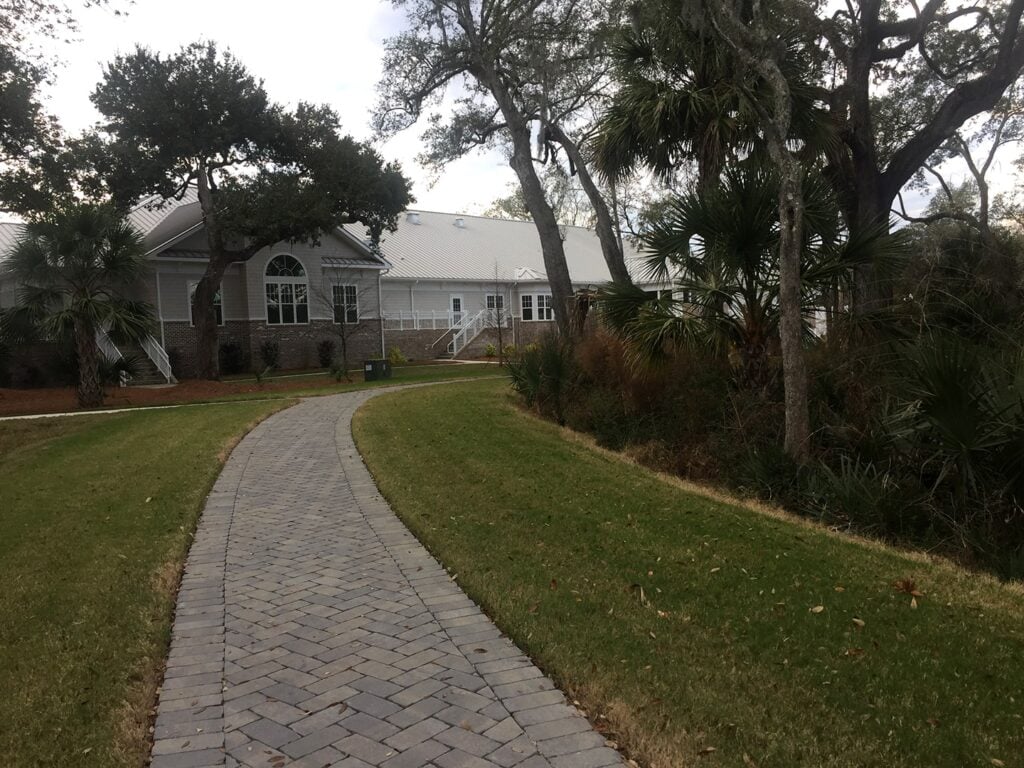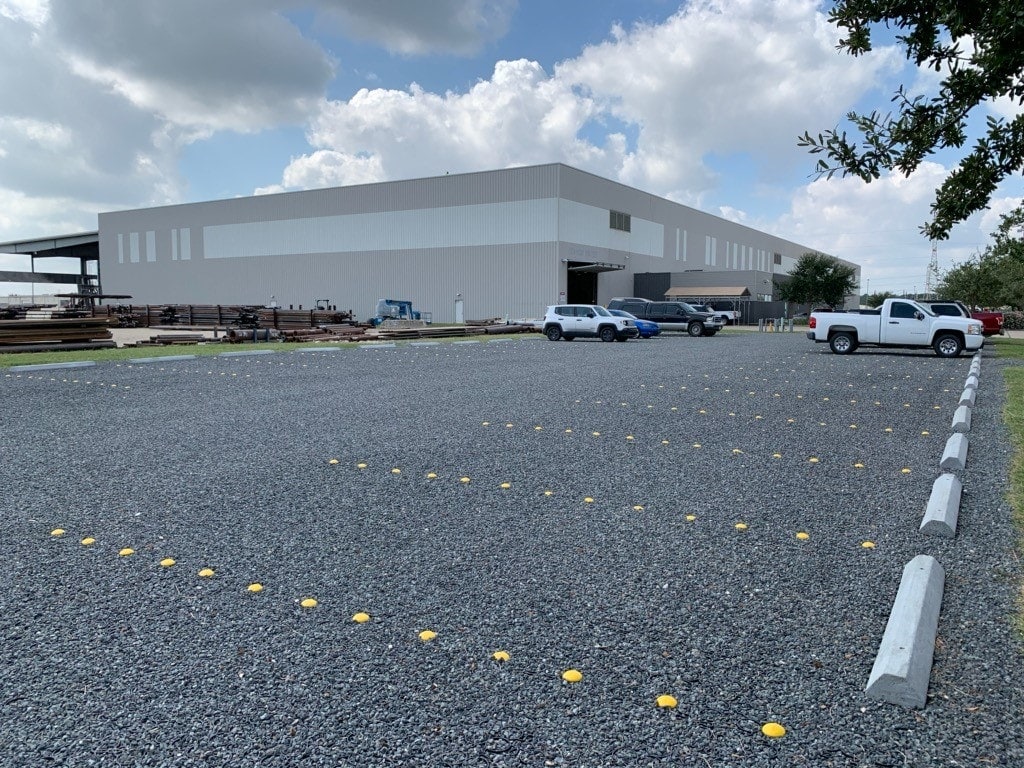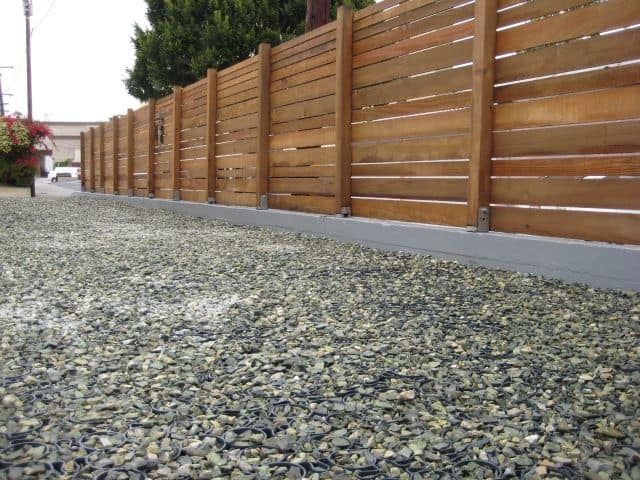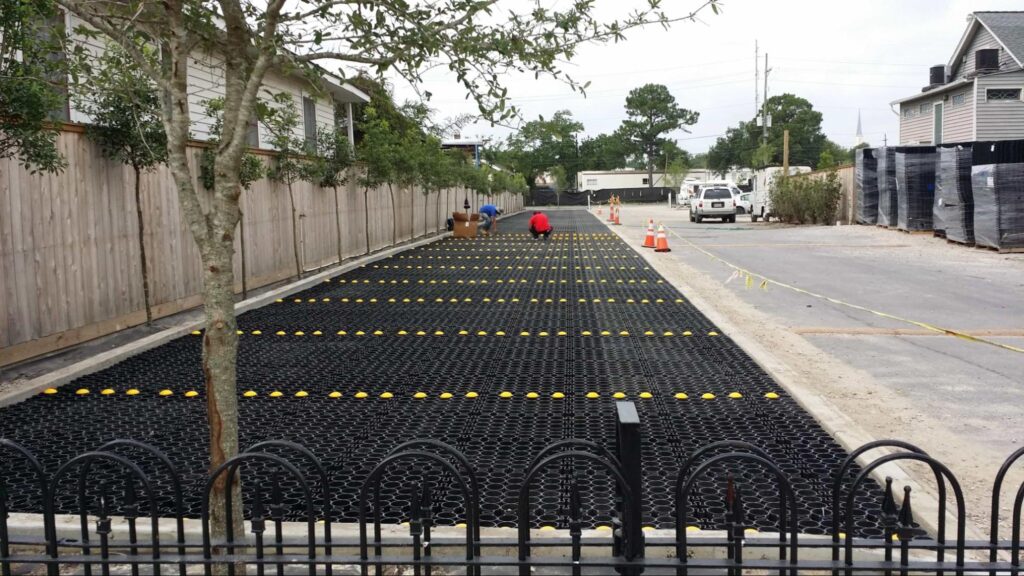
Whether creating a new patio, walkway, or driveway for your property or updating an existing space, it can be challenging to choose between two popular building materials; paving stones or gravel.
Paving stones and gravel are classic and rustically beautiful building materials that have been used for centuries worldwide.
When it comes down to it, what are the pros and cons of paving stones vs. gravel? Which one is right for your project?
It is essential to understand the nuances of each material to make an informed decision for your home or business’s new outdoor space.
Pros and Cons of Paving Stones vs. Gravel

As with any building materials, there are a variety of pros and cons when comparing paving stones and gravel; each product offers distinct advantages and disadvantages when building a driveway, patio, or walkway.
Paving Stones – Pros
Paving stones, which can range from natural blue stone or granite to manufactured concrete pavers or bricks, can add beauty to any outdoor living area.
Paving stones can provide a classic beauty to your project, but it’s important to know that they also present some significant disadvantages.
Wide Range of Colors
One of the most significant advantages of paving stones is the vast array of colors that are available. From warm reds and sandy tans to cool blues and greys, paving stones can match any home or building’s color scheme.
Wide Range of Shapes
You can purchase paving stones as irregular, natural stone shapes to create a more organic, natural space or as straight-edged, ninety-degree rectangles or squares for a uniform, geometric style.
Barefoot-Friendly
Do you strongly prioritize walking around outside barefoot? If so, paving stones are a great barefoot-friendly paving option. A paving stone’s smooth, flat surface is much more comfortable for the tender undersides of your feet than sharp, irregular gravel.
Paving Stones – Cons
Expensive
When comparing the price of paving stones to gravel driveways, patios, and walkways, paving stones are significantly more expensive than gravel.
Not only is the material cost for paving stones more expensive than gravel, but the labor cost for installation is substantially higher as well.
Difficult Installation
Properly installing hardscape materials like paving stones can often require experienced professionals and specialty tools.
Knowing how to achieve an adequately prepared subsurface and accurately screeding to ensure a smooth, flat finished product is a skill many hardscape contractors hone with years of experience.
Specialty tools like plate compactors for adequately compacting the base to avoid settling and paver pullers are essential to completing a paving stone project.
Gravel – Pros
Gravel comes in a variety of shapes and sizes. From the traditional ¾” crushed gravel you are probably familiar with, to small, smooth, and rounded pea gravel, there is a type of gravel to fit every need.
Gravel patios, walkways, and driveways are popular in rustic French architecture, English cottages, and European villas.
Drought-tolerant landscaping also commonly uses different varieties of gravel in its design. Gravel driveways, patios, and walkways can be excellent ways to create permeable surfaces around your home as well.
Cost Effective
One of gravel’s most significant advantages over paving stones is its dramatically lower cost.
Not only is gravel’s material cost substantially more affordable than paving stones, but the installation costs and labor fees associated with gravel surfaces are a fraction of what it costs to install paving stones.
Easy Installation
Creating a gravel driveway requires minimal special tools and can be done by any motivated DIYer with a couple of weekends and some good old-fashioned elbow grease.
Superior Drainage
Gravel surfaces can be 100% permeable and offer unmatched drainage, by eliminating issues caused by runoff, like puddles and flash flooding. Additionally, the permeability of gravel surfaces helps to replenish your area’s natural groundwater supply, to create a healthier environment for you and your family.
Gravel – Cons
Rutting
Gravel driveways are notorious for developing ruts once consistently driven on. Ruts are unsightly and can eventually lead to a muddy driveway as well as pooling or puddling.
Erosion
Gravel driveways essentially consist of loose stone, so they can be susceptible to erosion. Unlike paving stones which have structure and firm borders, gravel surfaces built on a hill, slope, or grade can erode over time and become a hazardous mess.
Spillage
Over time, gravel can spill out of its defined boundaries and into adjacent lawns and gardens, which causes a messy living area and can create a potential lawn-mowing hazard.
Eliminate the Downsides of Gravel with TRUEGRID®

You can create a gravel surface without the downsides by pairing the rustic beauty of a gravel driveway, walkway, or patio with the practical and eco-friendly functionality of TRUEGRID® permeable pavers.
Installing the TRUEGRID PRO LITE or PRO PLUS permeable pavers on top of your subsurface and then filling them with gravel creates a gravel surface that is immune to irritating rutting and spilling.
TRUEGRID permeable pavers are interlocking plastic grids engineered with an open structure of tubes. TRUEGRID’s open design allows you to fill them with gravel while simultaneously locking the gravel in place; this prevents the irritating spilling that can often plague gravel surfaces.
TRUEGRID permeable pavers are engineered with industry-leading compressive strength, making rutting a thing of the past; the PRO PLUS can easily handle the weight of trucks and heavy machinery.
Want to build a gravel patio or walkway on a slope or with a pitch? By using TRUEGRID permeable pavers, you can prevent nasty erosion and lock your beautiful gravel surface in place.
Curious about creating a durable grass driveway, parking lot, or walkway? TRUEGRID’s innovative ROOT® system allows grass to grow through its structure while protecting grass’s delicate roots from being crushed by vehicle weight, so that you can create stunning and durable grass surfaces.
Choose TRUEGRID Permeable Pavers for Beautiful, Eco-Friendly Paving Options

Since 2013, TRUEGRID has been on a mission to create easy-to-install, eco-friendly paving alternatives that can transform your outdoor living spaces from drab to fab.
Made from 100% post-consumer recycled HDPE 100% in the U.S., TRUEGRID has saved millions of pounds of plastic from landfills and waterways while returning millions of gallons of water to the water table.
Check out the full line of TRUEGRID products, or get an estimate for your project online and discover how you can be true to your project and true to the environment with TRUEGRID.



